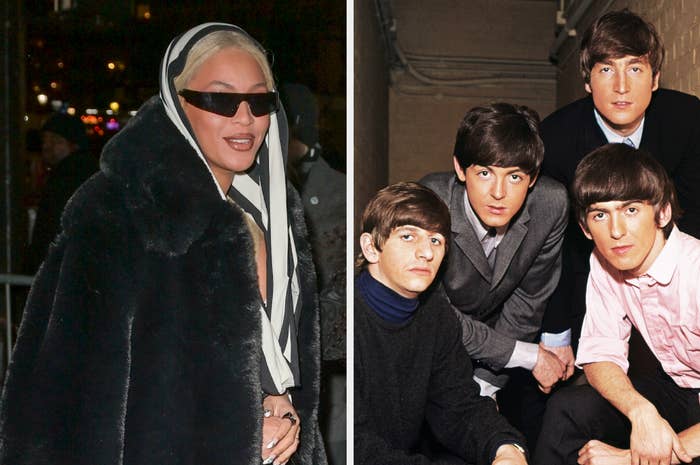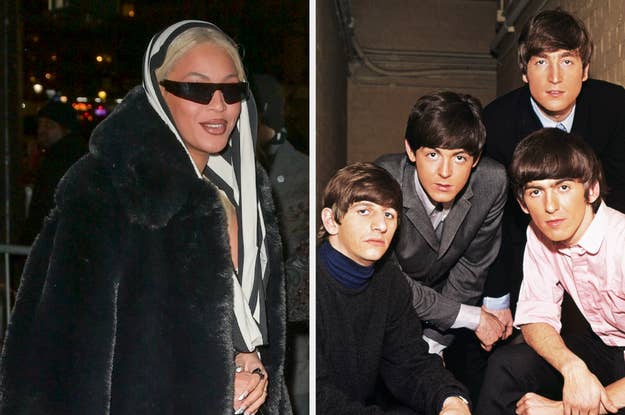
UPDATED 4/4, 8:20 p.m. ET: Paul McCartney is singing Beyoncé’s praises.
A week after Bey released her country-heavy Cowboy Carter album, McCartney took to Instagram to weigh in on her rendition of "Blackbird." The Beatles alum, who wrote the tune in 1968, said he was "so happy" with the 32-time Grammy-winner’s "magnificent" iteration, as it "reinforces the civil rights message that inspired me to write the song in the first place."
He wrote in the April 4 Instagram post, "I think Beyoncé has done a fab version and would urge anyone who has not heard it yet to check it out. You are going to love it!"
McCartney confirmed he had spoken to Beyoncé ahead of the project's release and gave her his blessing to update the tune.
"I spoke to her on FaceTime and she thanked me for writing it and letting her do it," he wrote. "I told her the pleasure was all mine and I thought she had done a killer version of the song."
He continued, "When I saw the footage on the television in the early 60s of the black girls being turned away from school, I found it shocking and I can’t believe that still in these days there are places where this kind of thing is happening right now. Anything my song and Beyoncé’s fabulous version can do to ease racial tension would be a great thing and makes me very proud."
See original story below.
One of the most striking moments on Cowboy Carter is Beyoncé’s cover of The Beatles’ classic song, “Blackbird.”
With her rendition, the song’s historical context comes to the forefront. According to Rolling Stone, Paul McCartney penned the song during the summer of 1968, as an ode to the American Civil Rights movement. He was inspired after learning of the Little Rock Nine, the group of teenagers who enrolled in an all-white high school in Little Rock, Arkansas in 1957, which, at the time, caused nationwide outrage.
Bey harnesses that history while adding her own flourishes. Her version, “Blackbiirds” features four Black women: Brittney Spencer, Reyna Roberts, Tanner Adell, and Tiera Kennedy. Per Rolling Stone, her iteration has connections to the 1970s singer Sylvester, who created a disco version of “Blackbird” in 1979. He was also reportedly the first gay Black pop star who was open about his sexuality. The nod to Sylvester also, once again, conjures Beyoncé's Uncle Johnny, who was a member of queer Black dance culture—and all of these references establish a throughline in Beyoncé’s Renaissance series.
Queen B and McCartney are no strangers. They hung out together at Coachella around 10 years ago, and he attended her 2011 New York residency. He was also in the audience at the Renaissance World Tour in London last year, where he was photographed toasting the singer with Jay-Z.
McCartney had his own full-circle moment with “Blackbird” in 2016 when he performed it in Little Rock and later met two of the Black women from the Little Rock Nine, Thelma Mothershed Wair and Elizabeth Eckford.
“Incredible to meet two prisoners of the civil rights movement and inspiration for ‘Blackbird,’” Paul said after meeting them, per the publication. “Way back in the Sixties, there was a lot of trouble going on over civil rights, particularly in Little Rock. We would notice this on the news back in England. So it’s a really important place for us, because to me, this is where civil rights started.”
Listen to Bey's version below.


